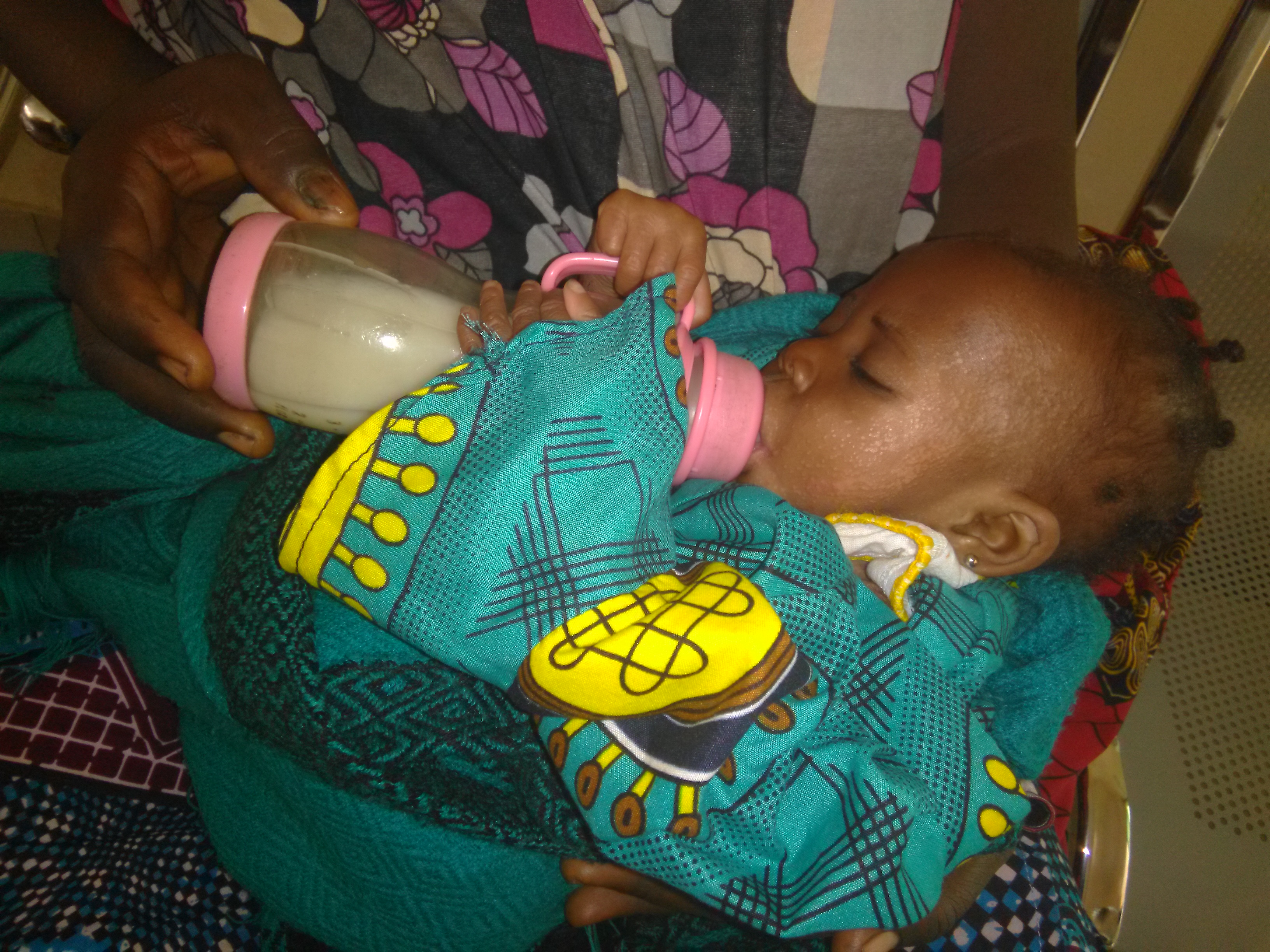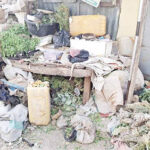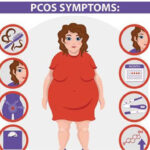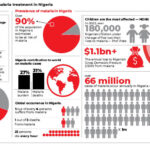After many hours of labour, Aisha Alhassan, a 21-year-old mother of three in Wakko, a rural community in Kwali Area council of the FCT could not live to see her third child ‘Aisha’ cradled to her chest for breastfeeding. She died shortly after giving birth.
Since this tragic incident, the life of the young child has been in trauma occasioned by lack of breast milk and proper complimentary food for healthy growth and development thereby becoming more vulnerable to many childhood diseases at intermittent intervals.
Strapped to the back of her paternal aunt, only the feeble whimper of the 7-month-old child announced her presence at the Community for Management of Acute Malnutrition (CMAM) centre at Kwali last Wednesday when she was taken to the facility on referral for medical attention.
Hassana Tijjani, a middle-aged woman said to be a paternal aunt to the little orphan, said she adopted the child after her mother died over seven months ago from labour complications.
“Her father is my twin brother and since her mother died as a result of labour complications just about three to four hours after she had put to bed, I assumed the responsibility of her upkeep feeding her on artificial milk and later pap.”
She said, “We buy a can of milk at N2, 200 weekly and sometimes due to poverty if we cannot afford the milk I give her akamu prepared from a mixture of sorghum and soya beans flour.”
She said despite the breaks in-between the feedings, little Aisha, named after her late mother, has been coping well until recently when she started losing weight with some accompanying rash and blisters all over her body.
“She was born a healthy child, but about two to three months ago we started noticing some changes in her health, she cried abnormally and eventually started developing some blisters all over her body, then I took her to the Primary Healthcare Center at Wakko where she was administered some injections and drugs, after three visits we were referred to this facility.”

Some of the medical workers at the health facility attributed the rising cases of malnutrition among children aged under five years across the country to ignorance and poverty in rural communities, urging the government and other stakeholders to step up sensitization on the need for exclusive breastfeeding and other complimentary food among women of child-bearing age.
The officer in-charge of Kwali PHC, Elizabeth Dakwai who disclosed that about 80 per cent of the women visiting the facility are enlightened about proper feeding practices for infants and young children however, blamed their cultural beliefs about child care for delay in adopting the best practices.
She further lamented the attitude of rural women to early initiation of new-born children to breast milk: many hold notions that colostrum, that first yellowish milk, is bad for consumption.
More than a dozen children were attended to when a team of health reporters led by Civil Society-Scaling Up Nutrition in Nigeria (CS-SUNN) visited the site for Community Management of Acute Malnutrition.
This reporter observed that all of the children were in various stages of malnutrition as some were on a follow-up visit while others are visiting the facility for the first time.
Some of the parents blamed poverty and lack of support from their husbands for their inability to practise exclusive breastfeeding for the first six months after birth.
Aishatu Jamilu is mother to one of the malnourished children on a follow-up visit at the facility. She regretted her action after feigning ignorance to the benefits of exclusive breastfeeding to her child’s growth and development.
“I know it’s good for my baby but I just didn’t want to do it at first as such I gave her water myself immediately after giving birth to her,” Jamilu said.
She said 18 months after delivery, her child started falling ill intermittently and started losing weight.
“I took her to the hospital but there was no improvement before we were referred to this CMAM centre where the child was placed on Ready to-Use Therapeutic Food (RUTF) and thank God her condition is now stabilized.”
Habiba Abubakar a 20-year-old mother of twins (Hassana and Hussaina) admitted that she did not introduce her kids to breast milk immediately after birth until the bad yellowish milk has washed out.

To her, the first yellowish milk known as colostrums is nothing but a poison to harm a child once it is fed upon.
Malama Abubakar who claimed ignorance about nutritional value of colostrum to child’s healthy growth and development, said her mother told her that the milk was poisonous for the child. She waited till she washed it out before she began breastfeeding.
“I am hearing this for the first time but our culture does not allow its use as it is believed to be poisonous for a child’s consumption. It is an age long belief our parent learnt from their grand parents and I learnt same from my mother, so immediately I delivered my kids I had to wash off the poison before breastfeeding them.”
Nutrition focal person, Kwali Area council, Jacinta Ngwu, who is also the assistant nutrition focal person of the CMAM centre, expressed concern over lack of sensitisation among rural women on proper feeding practices for infants and young children saying the situation has led to many children dying of preventable causes.
She said most of the children visiting the facility are from rural communities and suffer from severe acute malnutrition as a result of imbalance in their dietary intake.
Speaking about the services they render to the children, Ngwu said, “When the child comes here we have to take the weight and MUAC [mid upper arm circumference] of the child, it is the weight and the MUAC of the child that tell us whether the child is malnourished and the level of malnutrition in that child. If there are other physical assessments and questions we find out from the mother and if there is any medical complication we refer it to our stabilization centre which is Kwali General Hospital.”
She said though the services at the centre are free, some of the care seekers still find it difficult to be consistent in their visits due to poverty.
She said most of them are from farming communities in rural areas and are mostly constrained by lack of transportation fares.
According to her, “We have had instances where people registered, after first and second visits, they abscond and don’t come again because of financial problem”.
Ngwu said a severely malnourished child is supposed to be monitored consistently for a minimum of 8 to 12weeks for to be resuscitated back to the desired status. She however identified inconsistent visitation by the client as their major challenge in their war against malnutrition in the FCT.
She appealed to the government and other development partners to step up effort at providing more facilities to the centre so as to keep it functioning optimally.
United Nations Children Fund had earlier raised alarm over the rising cases of malnutrition among the under-5 children across the country saying an estimated 2.5 million children under the age of five suffer from Severe Acute Malnutrition (SAM) every year a condition that makes the children nine times more likely to die from common childhood illnesses such as such as diarrhoea, pneumonia and malaria.

 Join Daily Trust WhatsApp Community For Quick Access To News and Happenings Around You.
Join Daily Trust WhatsApp Community For Quick Access To News and Happenings Around You.


